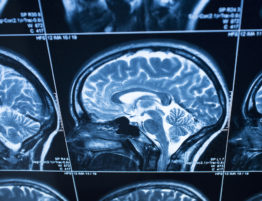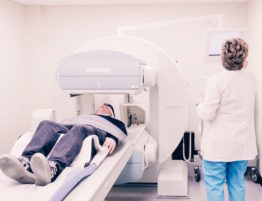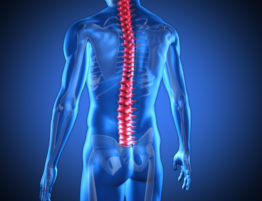How do you prove the existence of a brain injury?
There are several ways in which medical and psychological professionals diagnose brain injuries. The method will depend on the nature and extent of the injury. Some examples of diagnostic tools are MRIs, CT scans, PET scans and EEGs. In addition, professionals may study a person’s behaviors, movements and personality.
What disabilities are associated with a brain injury?
There are a wide range of possible effects of a brain injury depending on the location and severity of the injury. For example, a person may have altered muscle coordination, altered sensation, memory problems or even major personality changes.
What are common symptoms of concussion?
The common early symptoms of concussion are headache, vertigo, nausea and dizziness. Common later symptoms are anxiety, depression, chronic headaches, poor sleep, personality changes, depression and intolerance to loud noises or bright lights.
What is a closed head injury?
A closed head injury is damage to the brain as a result of external force to the head that does not penetrate the skull.
What are the main parts of the brain and their respective functions?
The main parts of the brain are the cerebrum, cerebellum, brain stem and diencephalon. The cerebrum is the largest section of the brain. Different parts of the cerebrum are related to the control of cognitive abilities, memory, motor function, learning and speech. The cerebellum is a part of the hindbrain. It coordinates voluntary and involuntary muscle movements. The brain stem is the lower extension of the brain. It acts as a relay station between incoming stimulus and the rest of the brain. The diencephalon is made up of the thalamus, which relays sensory stimuli, and the hypothalamus, which controls appetite, body temperature, pituitary secretions, emotions and sleep cycles.
What happens if the brain loses its blood and oxygen supply?
Brain cells die when the brain is deprived of blood and oxygen. This can cause major brain injury. The brain may lose blood and oxygen supplies as a result of a near drowning, choking, heart-stopping electrical shock or respiratory problems. When the brain is deprived of oxygen, it is known as an anoxic brain injury. This type of injury is different from a traumatic brain injury (TBI), which generally results in swelling or bruising of the brain.
What are possible effects of a severe brain injury?
Depending on the location and severity of the injury, there may be physical and/or behavioral effects. A severe head injury may affect a person’s ability to work, learn and live with his or her family. Possible physical effects include difficulty with mobility and coordination, difficulty talking and communicating, severe headaches and difficulty with sensation. Possible behavioral effects include personality changes, depression, short attention span, learning difficulties and memory difficulties.
What is brain swelling and what causes it?
Brain swelling and bruising may occur following a violent force to the skull. The brain will “bounce” off the inside of the skull. This can cause nerve shearing as well as the swelling and bruising of nerve tissue. The swelling can create pressure inside of the head, which may in turn lead to compression of vital blood vessels.
What kind of compensation is possible in a legal claim for a brain injury?
The compensation depends on the state, the injury and the severity and extent of the permanent effects. Medical costs, pain and suffering, loss of enjoyment of life, loss of earnings, mental anguish, rehabilitation costs and future medical expenses may be possible.
Our Attorneys Get Results in Traumatic Brain Injury Cases
We have won significant verdicts and settlements for clients who sustained brain injuries as a result of motor vehicle accidents, maritime accidents, construction accidents, and from many other causes.
Contact the traumatic brain injury attorneys of Stolpman Law Group, to arrange a free consultation about your case. From offices in Long Beach, our lawyers represent clients in the Los Angeles area and throughout Southern California.
Brain Injury Accident Attorney • Personal Injury Trial Lawyers, Long Beach, CA
Our personal injury trial lawyers represent accident victims who have suffered a traumatic brain injury throughout Southern California, including Los Angeles County and the Counties of San Diego, Ventura, Santa Barbara, San Bernardino, Riverside, Orange County.
What to do If you Suffered a TBI in an Accident
If you or a loved one was in an accident and suffered a brain injury, it is important to seek medical attention. Because many brain injuries go undiagnosed, it is essential that you have a variety of tests and that a doctor carefully examine your symptoms. After seeking medical attention, talk to a personal injury lawyer who has experience handling brain injury cases. An attorney at Stolpmann, Krissman, Elber, and Silver, LLP, can evaluate your situation, and walk you through all the steps in litigation and explain your chances of recovery.
Brain injury cases can be complex and difficult because of several factors. Defendants and insurance companies may not believe that the plaintiff has actually suffered a brain injury because many diagnostic tests fail to detect the injury. In addition, many individuals who suffer from a brain injury have memory loss and may not be able to remember the specifics of the accident that caused their injury. While these factors may make proving the brain injury more difficult, they do not necessarily preclude recovery for your injuries. If you or a loved one has sustained a brain injury, it is important to discuss your situation with one of the lawyers of Stolpman, Krissman, Elber, and Silver, LLP. Contact us for a free consultation today.






